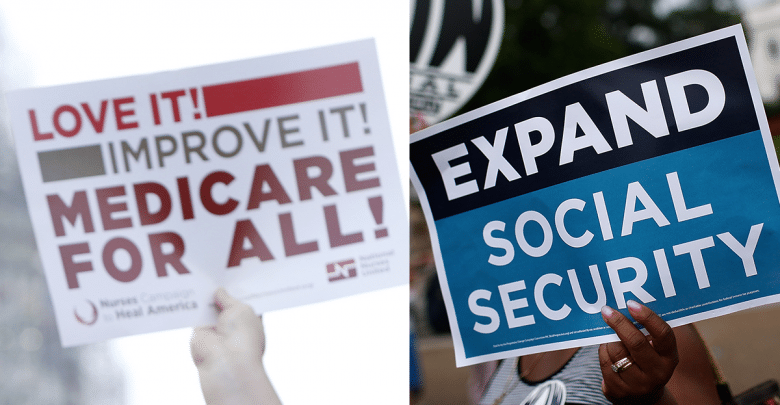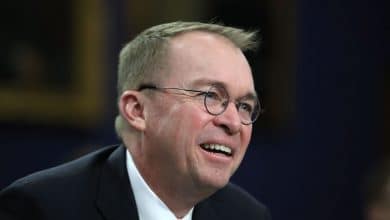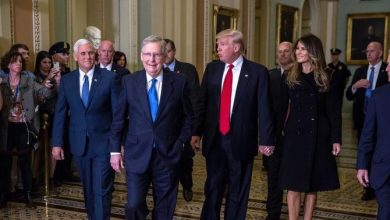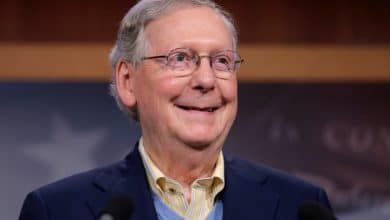MedicareSocial Security
Why is a Social Security Advocacy Group Championing Medicare For All?
We must have universal guaranteed health care to be economically secure

In 2010, Professor Eric Kingson and I co-founded Social Security Works, a non-profit organization focused on protecting and expanding Social Security. Currently, Social Security Works is helping to lead the campaign for expanded and improved Medicare for All. But, wait: Isn’t that mission creep? Absolutely not!
All Social Security beneficiaries aged 65 and over are eligible for Medicare. If beneficiaries pay less for Medicare in the future and if its benefit package is improved — covering, for example, dental, vision, and hearing benefits — the result is Social Security benefits that go further. Conversely, if Medicare premiums go up, Social Security benefits are indirectly cut.
But there is a much more basic reason that Social Security Works is championing Medicare for All: It is social security.
Those who created Social Security initially used the term as a synonym for economic security. What we today call Social Security — wage insurance protecting against the loss of wages in the event of long-term disability, death of a family breadwinner, and old age — was just one of eleven titles of the Social Security Act of 1935.
President Franklin Roosevelt and the other founders recognized that the base of economic security — that is, social security — is a good-paying job. To ensure that every American worker has that security, they understood that we need a strong minimum wage, maximum hours, and the right to collectively bargain. We must be educated, if we are to be economically secure. We must have housing, and we must be able to afford the other necessities of life. Moreover, none of us are economically secure if we can be left destitute in the event of unemployment, old age, death, disability, or illness. Therefore, working families need insurance against the loss of wages.
Undergirding all of that, people must be healthy. We must have universal guaranteed health care to be economically secure, to be, that is, socially secure.
Over time, though, our definition of Social Security narrowed. Arthur Altmeyer, nicknamed “Mr. Social Security” by President Franklin Roosevelt, was unquestionably the most important individual responsible for the creation, implementation, and development of our Social Security system over its first twenty years. In 1965, he spoke about the phrase, “social security”:
The term social security captured the public imagination not only in this country, but throughout the world. In the course of time the term came to be used in other countries in an expansive sense as a synonym for the Good Life.
…However, gradually the term social security in this country, instead of being used in a more expansive sense, has been used in a more limited sense to refer only to the Old Age, Survivors, and Disability System. I consider this extremely unfortunate…
At Social Security Works, we use the term “social security” the way President Roosevelt, Arthur Altmeyer, and the program’s other founders initially meant it. We will fight as hard as we can for expanded Social Security. That includes the fight for Medicare for All.
President Roosevelt, President Truman and their colleagues supported universal, guaranteed health care, but the political forces against the idea were too strong. After decades of trying, those championing the cause decided to push for Medicare as a first step. Robert M. Ball was a key founder of Medicare. In 1995, three decades after its passage, he wrote:
[A]ll of us who developed Medicare and fought for it…had been advocates of universal national health insurance. We all saw insurance for the elderly as a fallback position, which we advocated solely because it seemed to have the best chance politically….[W]e expected Medicare to be a first step toward universal national health insurance, perhaps with “Kiddicare” as another step.
The job has still not yet been finished. After people with disabilities were covered under Medicare in 1972, all progress stopped. Until now.
Democrats have recently woken up and reclaimed their heritage. The Medicare for All Act of 2017 is sponsored by Senator Bernie Sanders (I-VT) and co-sponsored by sixteen other Democratic Senators, including many who are likely to run for president in 2020. In the House, the Expanded & Improved Medicare For All Act has 123 co-sponsors, nearly two-thirds of the Democratic caucus.
Covering seniors and people with disabilities was the hard part on the road to guaranteed health care for all. Seniors and people with disabilities have the greatest need, on average, for health care. Covering everyone else should be the easy part. And now is the time.
Social Security Works is committed to finishing the job started by those visionaries who brought us Social Security and Medicare. We are committed to increasing the nation’s economic security. We are committed to expanding Social Security. We are committed to improving Medicare and expanding it to cover all of us. We invite everyone to join us in the fight.







